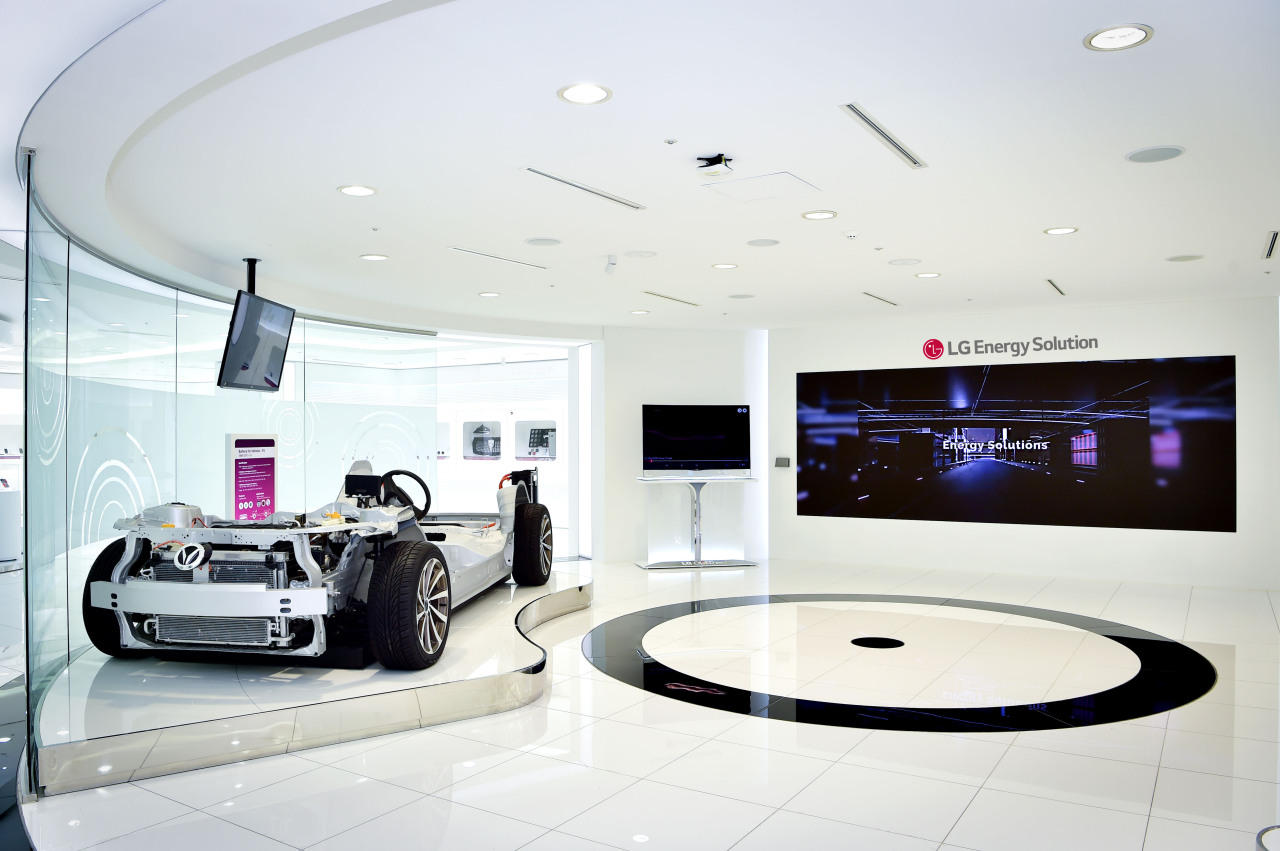[Advertorial] LG Energy Solution continues to focus on research
By Shim Woo-hyunPublished : Aug. 22, 2021 - 17:23

Building on its leadership in lithium-ion batteries, widely used in cars, phones and other electronic devices, LG Energy Solution is accelerating its research for next-generation cells, with an aim of debuting solid-state batteries and lithium-sulfur batteries by 2027.
The company said Sunday it also will increase its presence in the global battery market via expanding overseas manufacturing facilities.
A wholly owned subsidiary of LG Chem in South Korea, the battery maker has been researching lithium-sulfur batteries over the past few years, which it says could be widely deployed in the urban air mobility industry.
The global urban air mobility market is projected to grow to 730 trillion won ($621 billion) by 2040. Lithium-sulfur batteries for this new type of transportation will make up around 11.2 trillion won by that time, the firm said.
Last year, LG Energy Solution succeeded in operating an unmanned air vehicle equipped with a lithium-sulfur battery for 13 hours at an altitude of 12 kilometers, becoming the first South Korean company to complete such tests.
LG Energy Solution added that the company will continue the race to develop solid-state batteries, with an aim of mass production by 2027 as well. Solid-state batteries, which replace liquid electrolytes with solid materials, are often described as the “dream battery” that eliminate risks of battery fires.
Development of both lithium-sulfur and solid-state batteries will be lucrative additions to the company’s existing EV battery product lineup, the company said.
Other next-generation battery products that the company aims to add to its product portfolio include NCMA batteries -- which contain 90 percent nickel, 5 percent cobalt and the rest manganese and aluminum -- and silicon anode batteries, which have already attracted the attention of global EV makers.
The company has started mass production of silicon-based anodes in 2019 and supplied them to Porsche’s premium electric vehicle brand Taycan.
LG Energy Solution will begin production of NCMA batteries with increased nickel content during the second half of this year, it said.
While developing new battery products, LG Energy Solution will also raise its battery production capacity by building new manufacturing facilities.
The company said it will increase its production capacity to 155 gigawatt-hours by the end of this year, up 30 percent from 120 GWh last year. The company plans to ramp up its capacity to 260 GWh by 2023.
Earlier last month, LG Energy Solution and Hyundai Motor Group announced a joint investment of 1.1 trillion won to build a factory for electric vehicle battery cells in Indonesia.
LG Energy Solution will also finish construction of the second plant in the US to start manufacturing EV battery cells by 2023. LG Energy Solution and its US partner GM will together invest 2.6 trillion won in the project.
Apart from the partnership with GM, LG Energy Solution will secure a total of 5 trillion won to build another EV battery cell production plant with a capacity of 70 GWh. If completed, the company will have a combined capacity of 140 GWh in the US alone.
When construction is complete, LG Energy solution will have a worldwide supply chain through a total of five overseas factories, located in Korea, the US, China, Poland and Indonesia.
LG Energy Solution expects the company will be able to not only benefit from tariff, trade concessions and reduced logistics costs but also provide better technical assistance and customer services in foreign markets.
-
Articles by Shim Woo-hyun



![[Exclusive] Korean military set to ban iPhones over 'security' concerns](http://res.heraldm.com/phpwas/restmb_idxmake.php?idx=644&simg=/content/image/2024/04/23/20240423050599_0.jpg&u=20240423183955)

![[Graphic News] 77% of young Koreans still financially dependent](http://res.heraldm.com/phpwas/restmb_idxmake.php?idx=644&simg=/content/image/2024/04/22/20240422050762_0.gif&u=)



![[Pressure points] Leggings in public: Fashion statement or social faux pas?](http://res.heraldm.com/phpwas/restmb_idxmake.php?idx=644&simg=/content/image/2024/04/23/20240423050669_0.jpg&u=)










